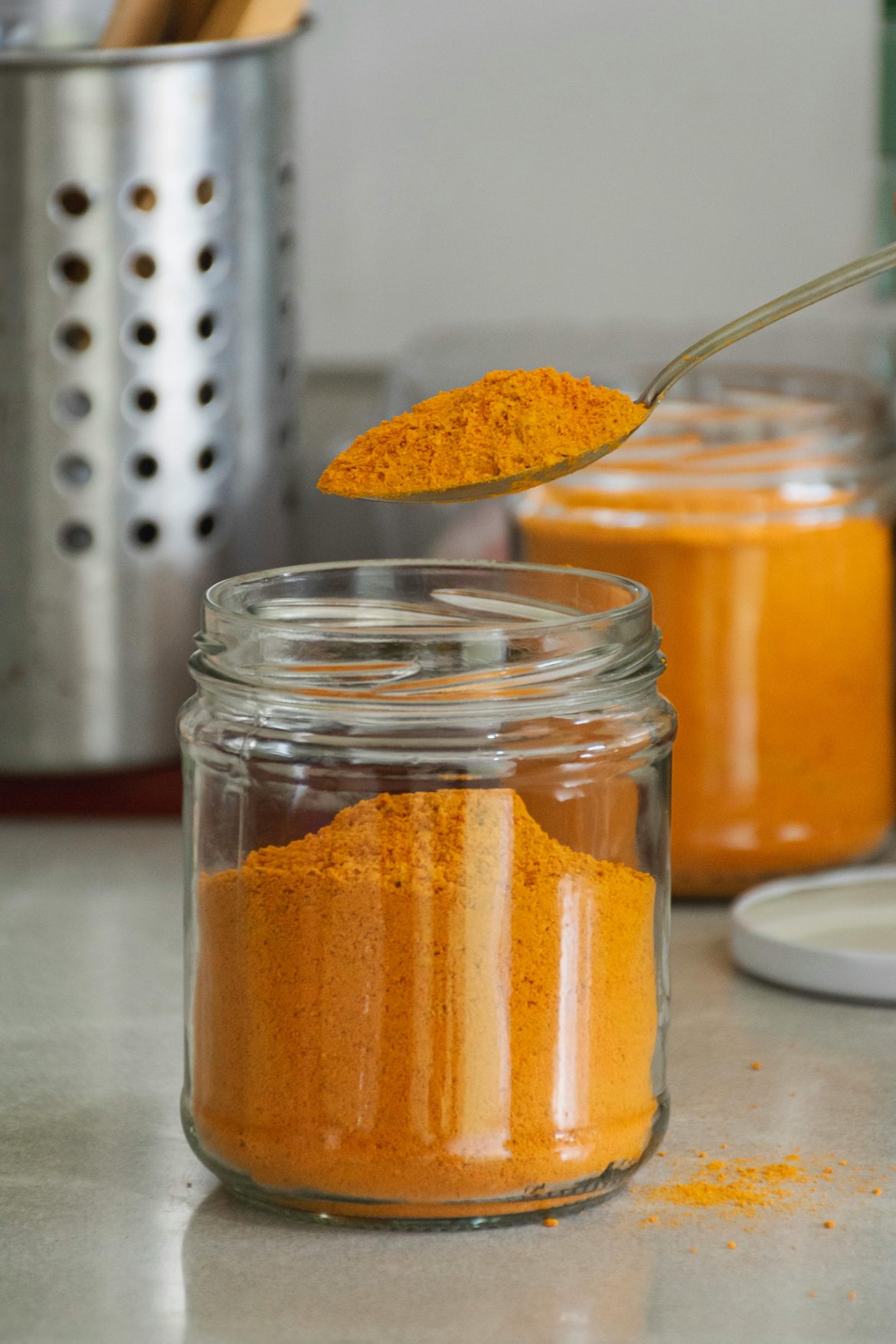Curcumin is an active component found in turmeric, lauded for its potential health benefits. This vibrant yellow compound, responsible for turmeric’s distinctive colour, is often used for its anti-inflammatory, antioxidant, and potential therapeutic properties.
As with any supplement, it’s important to understand both the benefits and risks before incorporating curcumin into your vitamin regimen. Let’s dive into the hype behind curcumin and how to add it to your daily routine.
Circumin’s anti-inflammatory properties
Curcumin has been shown to combat inflammatory pathways, making it a popular choice for managing chronic inflammation-related conditions such as arthritis and inflammatory bowel disease.
Curcumin may reduce joint pain and stiffness, offering potential relief for individuals with osteoarthritis and rheumatoid arthritis. Never take any supplement without speaking to your doctor first, though.
Circumin’s antioxidant effects
Curcumin is a potent antioxidant that helps neutralise free radicals, which are unstable molecules that can cause cellular damage and contribute to ageing and disease. By reducing oxidative stress, curcumin supports overall cellular health and may contribute to reduced risk of chronic diseases.
Curcumin’s antioxidant effects have a knock-on effect in treating skin concerns. Say hello to great, glowy skin!
Curcumin may support cardiovascular health
This turmeric property can improve endothelial function, which is crucial for maintaining healthy blood vessels and overall cardiovascular health. Preliminary studies suggest curcumin might help reduce cholesterol levels, contributing to heart health.
Curcumin for digestive health
Curcumin may help manage symptoms of digestive disorders like irritable bowel syndrome (IBS) and indigestion by reducing inflammation and supporting digestive tract health.
ALSO SEE: How to eat for your mental health
Risks and side effects of taking circumin
Digestive distress
Some individuals may experience gastrointestinal issues such as nausea, bloating, or diarrhoea, especially when taking high doses.
Interactions with other medications
Curcumin can affect blood clotting and may interact with anticoagulant medications, increasing the risk of bleeding if taken with blood thinners. It might lower blood sugar levels, which could interact with diabetes medications and necessitate careful monitoring.
Absorption issues
Curcumin is poorly absorbed by the body on its own. Its effectiveness can be limited if not consumed with substances that enhance absorption.
Allergic reactions
Though rare, some people may experience allergic reactions to turmeric or curcumin supplements.
Tips for adding circumin to your wellness routine
Choose high-quality supplements
Opt for supplements that contain curcumin with enhanced bioavailability, such as those combined with black pepper extract (piperine) or formulated as curcumin phytosomes.
Start with a low dose
Begin with a lower dose to gauge your body’s response and reduce the risk of side effects. Gradually increase the dosage as needed and as tolerated.
Combine with healthy fats
Curcumin is fat-soluble, so taking it with a meal containing healthy fats (such as avocado or olive oil) can improve absorption.
Consider turmeric fea or food
Incorporate natural sources of turmeric into your diet through cooking or beverages. Turmeric tea or golden milk (a blend of turmeric, milk, and spices) can be a tasty and beneficial addition to your routine.
Combine with other supplements
Some people find combining curcumin with other anti-inflammatory supplements, like omega-3 fatty acids or ginger, can enhance overall benefits.
As with any supplement, maintaining a balanced diet and healthy lifestyle will amplify the benefits and support overall wellness. Enjoy exploring the world of curcumin and discovering how it can complement your health journey.
ALSO SEE:
Featured Image: Pexels

